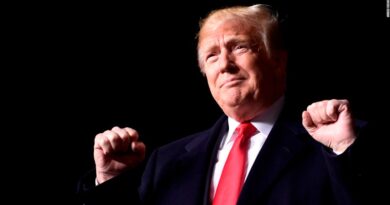Utah legislator floats conspiracy theory that election machines are changing votes

Just days after speaking at a Colorado event focusing on election fraud conspiracy theories, Rep. Phil Lyman, R-Blanding, claims he has heard “reports” of voting machines in Utah switching votes in the U.S. Senate race from incumbent Mike Lee to one of his challengers, Becky Edwards or Ally Isom. The truth is much tamer than hyperbolic claims of rigged election machines.
On Sunday, Lyman posted the claims of vote switching on social media. His post spread rapidly in several right-wing social media groups. Without evidence, Lyman also claimed that the voting machines’ software is “programmed with functionality” to switch votes after a ballot has been cast.
“We are finding evidence that the software absolutely has a back door,” Lyman wrote.
Lyman did not respond to a request for comment.
Lyman’s hyperbolic post hearkens back to the aftermath of the 2020 election and Trump campaign lawyer Sidney Powell’s claim that a conspiracy of global interests led by George Soros, communists, the CIA, the Clinton Foundation and deceased Venezuelan dictator Hugo Chavez rigged voting machines to switch ballots from Donald Trump to Joe Biden. Powell is being sued by election technology companies Dominion Voting Systems and Smartmatic for defamation.
Lyman’s claim seems to come from a voter in Wasatch County who posted on Telegram that they were having difficulty with the touchscreen voting machines.
Utah election officials say those machines were set to display ballots using a smaller font setting that put all the races on one screen.
Utah County Clerk Josh Daniels says ES&S, the company that manufactured the machines, made a recommendation on Monday morning to change to a larger font setting.
“That issue is fixed as counties are using the larger display setting, where each contest is its own page. Voters will also use a stylus,” Daniels said.
Daniels added that touchscreen machines are primarily for voters who need accessible features, and most voters who vote in person use a paper ballot they’ll mark with a pen.
Wasatch County Clerk Joey Granger says all of the problems with voting machines Lyman referenced were handled by poll workers last week.
“Everyone confirmed their votes were accurate, and the poll workers were able to handle any issues,” Granger says.
Salt Lake County Clerk Sherrie Swensen says her office has not received any complaints about problems with voting machines.
“Voting machines cannot switch votes,” Swensen said.
Weber County Clerk Ricky Hatch also cast doubt on Lyman’s allegations.
“Anything’s possible, but those machines have gone through an extensive certification process by an independent testing lab, and are audited before and after every election in a public meeting, and are sealed with prenumbered security seals at all times that are frequently checked,” Hatch said.
Claims of machines switching votes happen nearly every election, but few of them are substantiated. In 2016, there were rampant rumors of “vote switching” in Texas, but none were verified.
All three Republicans on Tuesday’s primary election ballot pushed back against Lyman’s election fraud claims.
“As we look forward to Election Day, our campaign has every confidence in Utah’s elected county clerks and the Lieutenant Governor’s office to oversee free and fair elections. We thank them for their service,” Mike Lee said in a statement on Monday.
Edwards and Isom took a much harder stance, calling out Lyman for his conspiratorial post.
“Your weekend conspiratorial texts about election security sent to Utah voters is what extreme voices do to politics,” Isom posted on Twitter.
Edwards called on Lee to condemn Lyman’s post. She also said voters should be concerned about “false claims of election fraud” that are used to “sow seeds of doubt” about the election.
It is likely Lyman’s theories about election fraud are influenced by the company he keeps.
On Friday, Lyman was a speaker at the “Election vs. Selection” event in Grand Junction, Colorado, which focused on evidence-free theories that the 2020 election was stolen from Donald Trump. The headline speaker was My Pillow CEO Mike Lindell. Colorado county clerk Tina Peters, who is facing multiple felony charges for allegedly posting sensitive data from voting machines online, was also on the bill. Peters, who is running for secretary of state in Colorado, has been barred by a court from overseeing elections.
Last year Lyman traveled to South Dakota with former Utah Rep. Steve Christiansen for Lindell’s cyber symposium on election fraud. He interviewed Peters for a pair of election fraud conspiracy events held in Utah earlier this year. Two of the speakers at those events, data analyst Jeff O’Donnell and former Wisconsin Supreme Court Justice Michael Gableman, also spoke at Friday’s event.
Lyman’s post directs Utahns who want to share their stories of voting irregularities to send an email to an address owned by Utahns Jenn Orten and Sophie Anderson, who go by the name “Two Red Pills” on social media. Their name comes from the Matrix movie series where people who take the “red pill” see the world for what it really is. The reference has been adopted by followers of the QAnon conspiracy theory.
Orten and Anderson have been relentless promoters of conspiracy theories about election fraud since the 2020 election. They have become minor celebrities in far-right circles for their claim that they have been targeted by shadowy federal authorities for questioning the outcome of the 2020 election.
“I had what we believe to be FBI on my doorstep. My house was bugged. Trackers were put on my car,” Orten said during Friday’s event.
“I was surveilled in restaurants with Sophie. She had ‘watch your back’ written on the back of her car with a man in a ski mask following her. We had what seems like it’s very likely to be poison darts put in some of our clothing,” Orten continued.
Orten and Anderson did not respond to a request for comment.
The two are currently suing three counties in Utah to obtain data from election machines used in the 2020 election.
This article has been archived for your research. The original version from Salt Lake Tribune can be found here.


